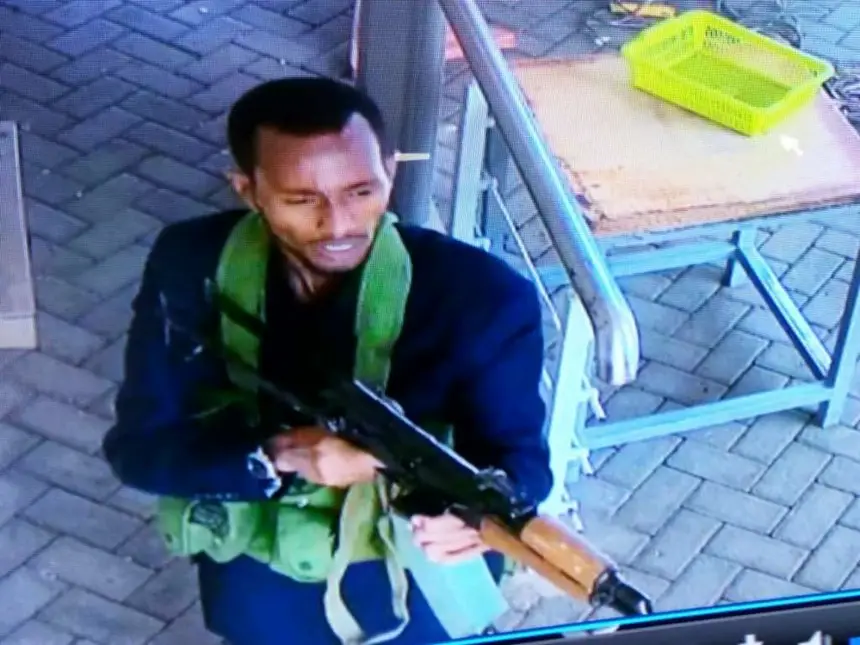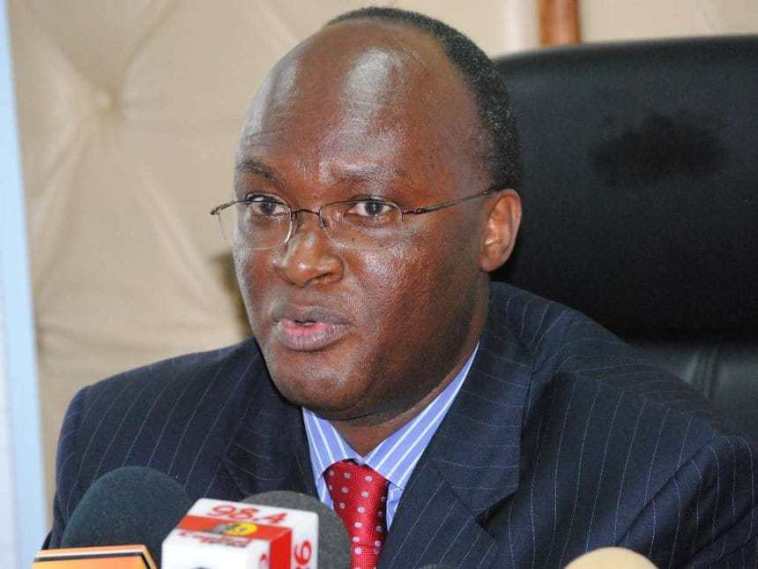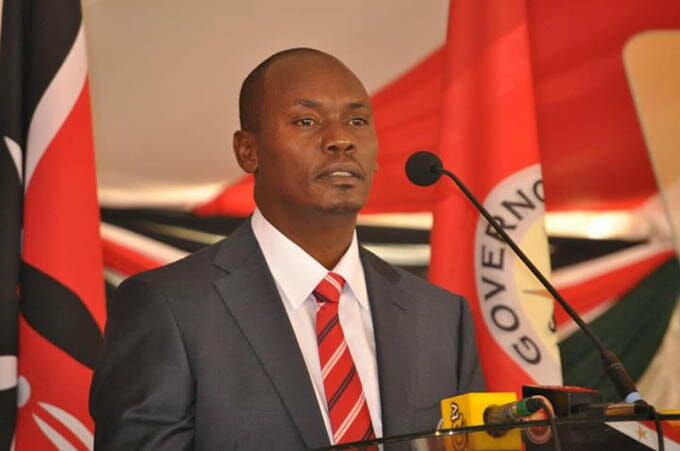
The father of DusitD2 terrorist Ali Salim Gichunge, alias Farouk, lost touch with his only son four years ago and had no idea he had secretly joined al Shabaab.
Ali Gichunge, a KDF sergeant, has told investigators that he was last in contact with his son in 2015. He was shocked to learn that he was among the six people who launched the Tuesday attack on the 14 Riverside Drive complex that claimed 21 lives.
One suicide bomber blew himself up, five other terrorists were killed. A seventh man is on the run.
Born and bred in a strict Muslim family in Isiolo, Farouk had great ambitions of becoming an engineer. He never missed his madrassa classes at his rural home in Isiolo where he grew up.
His father hailed from Isiolo, his mother Salma Gichunge came from Majengo in Nyeri.
After high school in 2011, Farouk went to stay with his maternal grandparents in Nyeri’s Majengo slums.
Yesterday Farouk’s father told investigators that his son had big dreams when he sat his KCSE exams at Isiolo Barracks High School in 2011.
He revealed his son’s character and personality in police statements.

Gichunge described his son as a brilliant calm and collected person who brought joy and laughter to the family.
He suspects his son could have lost focus in life after he separated from the boy’s mother in 2010.
Farouk loved drama and occasionally took part in drama competitions at his school and during madrassa classes.
However, Farouk did not attain grades that allow him to join university where he could study engineering.
His father said he kept in touch with his son, even after separating from his wife, and According to Farouk’s father, he kept in touch with his son even after separating from his wife and supported financially until 2015 when he lost contact.
“I could no longer find him on the phone and had no idea where he was,” Gichunge is reported to have told the police.
After failing to join university, Farouk stayed with his mother at their home in Isiolo where did menial jobs such as selling miraa in the estates.
He later left Isiolo for Nyeri and in 2015 went to Mombasa where he planned to study and teach Islamic religion at a mosque in Majengo area of Mombasa.
And as soon as Farouk left Nyeri, he cut links with his father but remained in constant communication with the mother and her two sisters who are still in school and living in Isiolo. His mother, Salma Gichunge was due to record a statement last evening.
The father says in his statement that he had called his estranged wife several times to ask about his son, who had also changed his cell phone number. He complained that the mother had told him that she also did not know his son’s whereabouts but he doubted this. He concluded that the mother wanted to lock him out of his son’s life. Thus, he decided to concentrate on raising his new family with a second wife.
The father further told investigators that he was in shock to see images of his son circulating on social media during the DusitD2 hotel complex terror attack on Tuesday.
The KDF sergeant suspects his son could have been radicalised while studying at a Mombasa mosque where he was also a part-time madrassa teacher.
“He was tapped from Majengo in Nyeri, then taken to Mombasa where he could have been radicalised,” the father said.Yesterday Nyeri county commissioner Fredrick Shisia told the media that a multi-agency team was already on the ground to investigate Farouk, his upbringing and associates.
Nine people have been arrested following the attack. The Red Cross yesterday said that the 50 people who had been reported missing have been accounted for.
A major hunt is underway to find the planners, financiers, sympathisers and the seventh man who had lunch with the killers on Tuesday before the attack.
The seven had lunch at Oilibya along Limuru Road hours before the attack.
Somalia-based Islamist group al Shabaab claimed responsibility for the attack.
Police raided Farouk’s house in Guango estate, Ruaka, on Wednesday where they believe the attack was planned. Farouk was positively identified through his fingerprint samples presented to the Registrar of Persons.
Located between Nyeri’s Central Business District and King’ong’o area in Nyeri town, the sprawling Majengo slum is one of the most densely populated areas in the town and home to some of the poorest people.
Most residents are casual labourers.
The area harbours dangerous criminals, bhang peddlers, prostitutes, illicit brewers and contraband goods peddlers.
It is believed that goods stolen in the town and environs are stashed in the slum while criminals take shelter in Majengo.
As a result, it is usually the first target whenever there is a security crackdown. It is believed that some of the people felled by police bullets after the killing of Kamakwa chief Peter Kimiti came from the area. He was killed on July 26 last year.
The operation was ordered by Interior CS Fred Matiang’i and it also affected Kamakwa area on the outskirts of Nyeri town.
Though the area is densely populated, people know each other well and strangers are easily spotted and monitored.
This could be why the area is a safe haven for criminals on the run.
There have been reports that radicalisation could also be taking place there as residents are highly secretive.
Houses are cheap and made of low-quality off-cuts. They rent for as little as Sh500 per month.
Due to the high rate of poverty, people are readily available and easily manipulated by politicians and activists as criminals and demonstrators for hire.
“With only Sh200 per person per day, you can easily get demonstrators for hire here as there are so many idlers,” one Nyeri resident says.
In May last year, Nyeri police arrested terrorism suspect believed to have sneaked into the country from Somalia and heightened security surveillance in Nyeri following reports that Nyeri could be a target of terror.
Detectives are said to have been tracking the suspect’s movement.
Nyeri town MP Ngunjiri Wambugu said the news that one of the suspects spent time in the area, which is in his constituency, came as a surprise to him.
“It was something that we never expected,” he told the Star on the phone.
He said together with security officials, they will organise a security baraza with young people in a week to talk about the issue.“This is something that we are going to engage with the community as leaders. We will call the community and especially the people from Majengo and we are going to talk about it,” he said.

















































